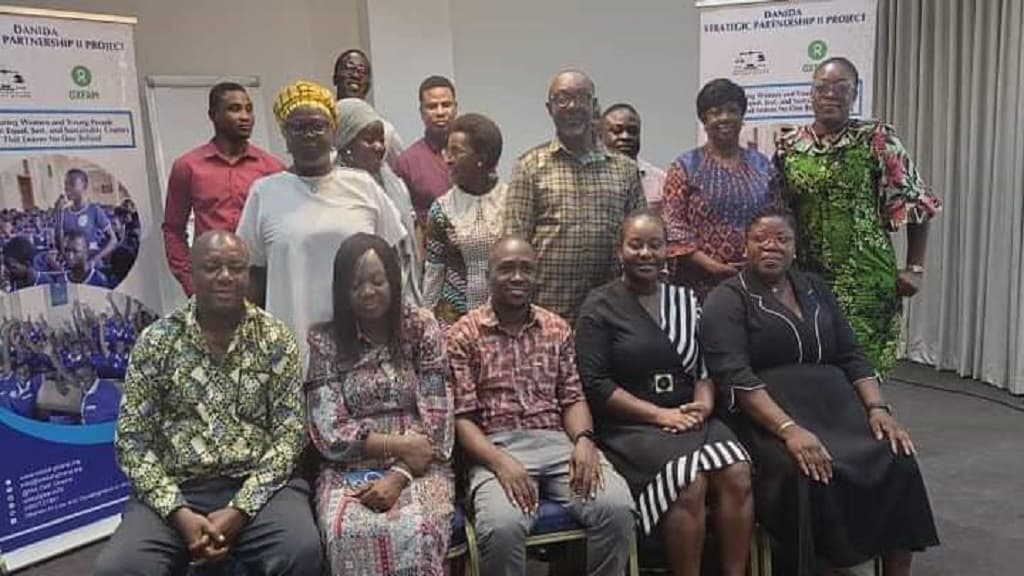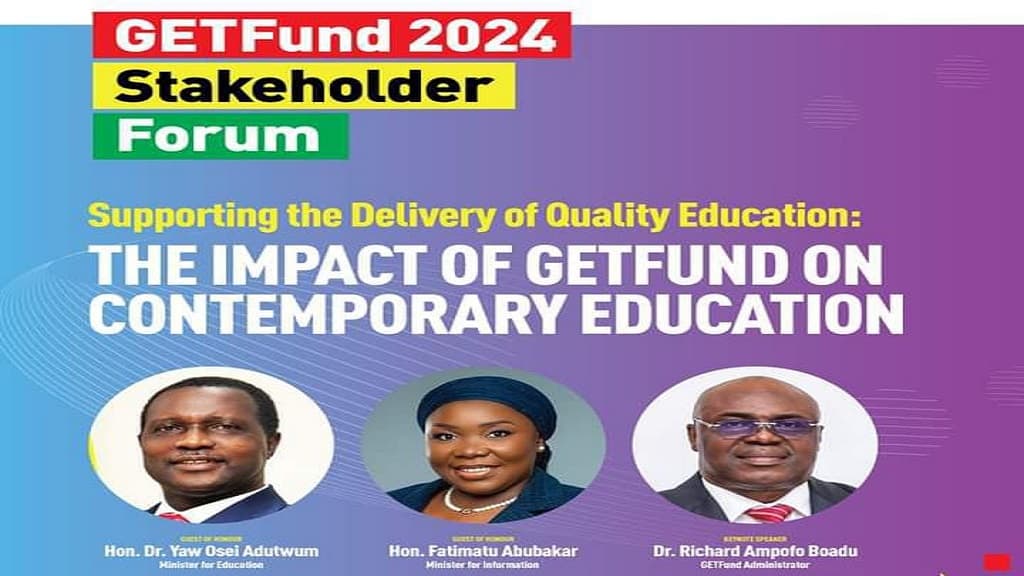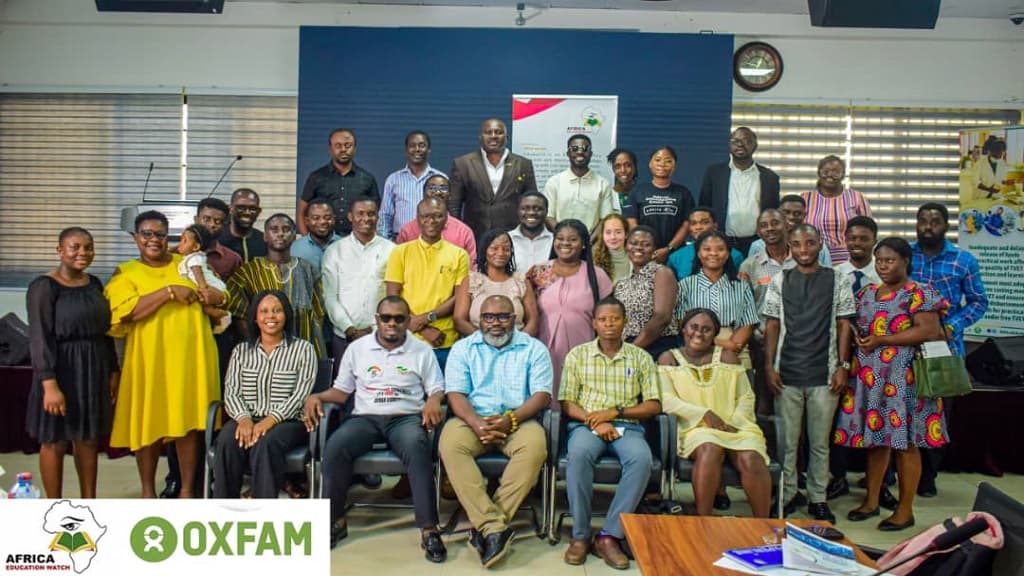Eduwatch Participates In WILDAF Ghana's Roundtable Dialogue On SRGBV
|  | |
|
On Wednesday October 9, Eduwatch participated in a a Roundtable Dialogue on School-Related Gender Based Violence (SRGBV) organised by the Women in Law and Development in Africa (WiLDAF) Ghana. The engagement was part of WiLDAF Ghana's activities to commemorate the 2024 International Day of the Girl.
The roundtable dialogue brought together key policymakers, policy implementers and social protection stakeholders to discuss the findings of a scoping study which reviewed the laws and implementation of national mechanisms on SRGBV in Ghana. The study assessed the effectiveness of various policies, laws and institutional frameworks in Ghana that address SRGBV, and made recommendations to improve system efficiency.
Stakeholders among others, stressed the need to involve parents in efforts to address challenges faced by vulnerable teenagers prone to SRGBV. A call for stricter punishments for perpetrators of SRGBV was made, as a way to effectively deter prospective perpetrators from engaging in the act.
Low capacity of frontline education service providers was projected as a major challenge in addressing SRGBV especially at the school level, as most educators are not abreast with the mechanisms in preventing or addressing such incidents. Stakeholders recommended the need to engage or improve sensitization of frontline workers in the SRGBV chain.
Eduwatch's Programme Officer, Kwasi Nimo Jnr, contributing to the discussion on improving advocacy on SRGBV, indicated the need to engage the media as partners in advocacy, and not just reporters of the news or events, as has been the practice. He stressed how crucial the media can be in the fight against SRGBV if they are engaged as collaborators, and encouraged to leverage their profession and unlimited exposure to enhance sensitization on SRGBV preventive and reporting mechanisms.
Participants in the dialogue were drawn from the national, Ashaiman and Kasoa Ghana Education Service directorates, the Judicial Service, ICDP, Noorsac, Alliance for Women in Media, DOVVSU, and Oxfam in Ghana among others.
© Africa Education Watch | |
|
|
|
Eduwatch Participates In GETFund's 2024 Stakeholders Forum
|  | |
|
On Tuesday October 22, Eduwatch participated in the 2024 Stakeholders Forum of the Ghana Education Trust Fund (GETFund). The Forum is organise annually to enable GETFund account to the general public on the use of taxpayers' money in improving access to education at all levels.
In a presentation on the impact of GETFund on contemporary education, the Administrator, Dr. Richard Ampofo Boadu outlined significant gains made by the Fund in supporting infrastructure and other state projects, as well as providing scholarships to brilliant but needy students to further their education post-secondary. Dr. Boadu used the opportunity to clear the misconception that GETFund is largely a scholarship providing agency, indicating that scholarships only constitute 5% of the Fund's annual budgets.
On projects, the GETFund Administrator provided that the Fund had completed 3,077 projects including 1,832 legacy projects (i.e., projects started by previous governments) and 1,245 new projects, with a three-year completion plan in place, to complete all uncompleted projects. He added that the Fund had paid all arrears/debts to contractors it came to meet, and with a 60% allocation from its 2024 budget, it plans to settle the arrears of all contractors spanning from 2019 to September 2024.
On scholarships, Dr. Boadu indicated that by the 2016/2017 academic year, GETFund had given out only 333 local scholarships, a number which has increased significantly to 5,026 by the 2023/2024 academic year. He added that no applicant with special needs was denied a scholarship in the 2023/2024 applications.
Stakeholders commended GETFund's efforts in enhancing access to education in Ghana through its various projects, while ensuring judicious and efficient spending in granting scholarships. GETFund was however urged to improve its financing of Technical and Vocational Education amd Training (TVET) in Ghana although it had made some gains in the TVET space.
Participants were drawn from basic, secondary and tertiary institutions, state and nonstate institutions, civil society, faith-based organisations, academia and the media.
© Africa Education Watch
| |
|
|
|
Eduwatch Holds Budget Analysis And Advocacy Capacity Building Workshop For CSOs And Media
|  | |
|
On Thursday October 24, Eduwatch held a Budget Analysis and Advocacy capacity building workshop for Civil Society Organizations (CSOs) and the Media at the WACCI auditorium on the University of Ghana campus. The workshop aimed at equipping CSOs with budget analysis skills to promote effective advocacy for adequate and equitable financing of education in Ghana.
Participants were taken through series of sessions to enhance their understanding on budgets, the budgeting cycle, and key features of Ghana's education budget. There were also sessions to guide participants through analyzing the education budget, and some strategies for advocacy on same.
Groups were formed for participants to put to practice some lessons from the sessions. By the end of the workshop, participants had among others, acquired the knowledge to enable them calculate education's share of the national budget, and education's share of GDP - two key figures that guide education budget advocacy. Participants also acquired knowledge on using their respective platforms to advocate for quality education through adequate and equitable financing.
The workshop was facilitated by Eduwatch Executive Director, Kofi Asare, and Programme Officer, Kwasi Nimo Jnr. Participants included CSOs partners such as FOSDA, Revenue Mobilization Africa, SEND Ghana, GNECC and members of the CSOs Platform on SDG 4, as well as our media partners.
© Africa Education Watch
| |
|
|
|
Eduwatch Publishes OGI IV Report
|  | |
|
On Friday, October 25, Eduwatch published the fourth edition of its annual Open Governance Index (OGI IV) Report on Education Sector Institutions (ESIs). The OGI IV assessed the responsiveness of the 18 ESIs and 16 Public Universities to Open Governance Indicators based on which performance scores were assigned. Data was collected over a six-week period from 13th May to 18th June, 2024.
Key Findings
1. The Ghana Commission for UNESCO placed 1st in the OGI rankings, followed by the Ghana Book Development Council, Ghana Tertiary Education Commission, Ghana Library Authority, West African Examinations Council and Encyclopedia Africana Project all placing second.
2. All ESIs responded to our Right To Information (RTI) requests.
3. The percentage of ESIs who frequently updated their social media handles increased from 80 (in OGI III) to 95.
4. The percentage of Public Universities with responsive telephone lines increased from 45 (in OGI III) to 60.
5. Almost all (90%) Public Universities kept their official websites regularly updated.
6. The official telephone line of the Ministry of Education remained inactive since 2021 when the OGI assessment started, while their official email address remained unresponsive.
7. Most (80%) ESIs had not published their strategic plans on their official websites.
8. Most (80%) ESIs had not published their 2023 Annual Peports on their official websites.
9. Most (70%) Public Universities had unresponsive email addresses.
10. The University of Cape Coast was the only Public University that failed to update its website regularly, while operating a non-responsive email address and telephone lines.
Recommendations
1. The Ministry of Education must adopt and supervise Open Governance Standards in all its agencies through Key Performance Indicators.
2. The Ministry of Education must provide functional official telephone lines and email address to replace the current ones on its website which have been non-functional since 2021.
3. The Ministry of Education and its agencies must publish Annual Reports and Strategic Plans on their official websites.
4. Management of Public Universities must ensure the responsiveness of their official email addresses and telephone lines for improved public access to information.
The full report is available via the link below:
https://africaeducationwatch.org/publication/ogi-4-report
© Africa Education Watch
| |
|
|
|
|